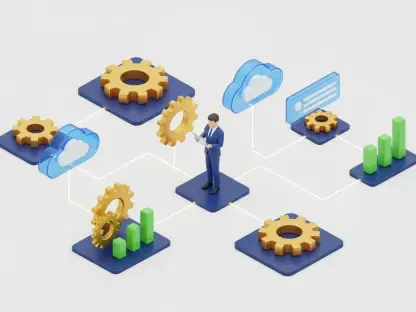How adept are individuals and organizations at navigating the overwhelming influx of data that confronts them every day? Statistics highlight a staggering generation of around 2.5 quintillion bytes of data globally each day, influencing decision-making processes in profound ways. Consider a situation where a business leader, overwhelmed by conflicting data sources, made a costly decision due to a lack of understanding. This scenario illustrates the importance of data literacy in contemporary decision-making.
Understanding the Integral Role of Data Literacy
In today’s interconnected world, data is not merely an abundance of numbers but a cornerstone of everyday and professional decision-making. Whether combating misinformation on social media or stepping up in a competitive business arena, the ability to interpret data is becoming ever more imperative. The expectation is not confined to data scientists alone; now, everyone, from students to CEOs, is expected to be data-literate and make informed decisions based on sound data investigation and interpretation.
Data literacy is essential as society faces challenges like the spread of misinformation, where discerning fact from fiction requires not only critical thinking but also a keen understanding of data. Many sectors now demand and expect data proficiency to navigate complex problems and develop strategies to outperform competitors. As the digital age advances, data literacy isn’t just an asset—it’s a necessity for personal and professional success.
Deconstructing the Essentials of Data Literacy
Data literacy involves the ability to read, analyze, and converse with data. It forms a foundation for enhanced problem-solving and nurtures critical thinking capabilities crucial in current and emerging fields. For instance, in finance, healthcare, and marketing, professionals armed with data literacy command a significant advantage, enabling better strategic planning and execution influenced by data-driven insights.
Not just limited to technical skills, data literacy fosters the ability to dissect complex issues systematically, promoting objectivity over intuition. It empowers individuals to uncover credible insights amid potentially misleading data, refining strategic foresights. In various industries, data literacy is a linchpin driving productivity and competitive edge by transforming raw data into actionable intelligence.
Insights from Experts and Real-World Applications
Industry experts underscore the value of data literacy, attributing its presence as a catalyst for more precise and informed decision-making. Recent research corroborates their claims, confirming that entities proficient in data literacy consistently outperform their less adept counterparts. Case studies abound illustrating businesses that, by harnessing their data literacy prowess, have navigated market downturns and seized growth opportunities.
Anecdotes abound about organizations that embraced data literacy cultures to revolutionize decision-making. For example, a global retailer reportedly boosted its sales strategies by interpreting consumer behavior data, leading to significant revenue gains while honing their targeting tactics. Such examples spotlight data literacy as an integral asset.
Steps to Cultivate Data Literacy Skills
Enhancing data literacy is achievable with strategic initiatives, such as incorporating regular training and employing data dashboards that facilitate ease of use. Organizations can spearhead these initiatives by creating environments of data curiosity and equipping employees with data visualization tools that simplify complex data sets.
A stepwise approach for advancing data literacy begins with fostering foundational skills through educational programs, followed by integrating collaborative platforms that encourage data engagement. Encouraging an organizational ethos that prioritizes continuous learning and adaptation addresses the evolving demands of the digital landscape, forming a robust framework for data literacy advancement.
Reflecting on Future Directions in Data Literacy
In summary, individuals and organizations have come to recognize that data literacy is an indispensable skill in today’s data-saturated environment. By adopting proactive steps toward maintaining and enhancing these competencies, they stand to gain remarkable benefits, from refined problem-solving techniques to superior strategic decisions. As data continues to grow exponentially, the ability to navigate its complexities will not only define success but also drive innovations in diverse fields. Organizations equipped with robust data literacy frameworks seize opportunities for competitive advantage, secure better decision-making strategies, and anticipate future challenges with enhanced agility.









